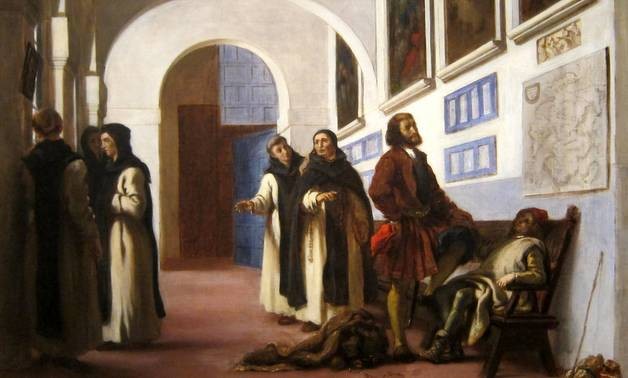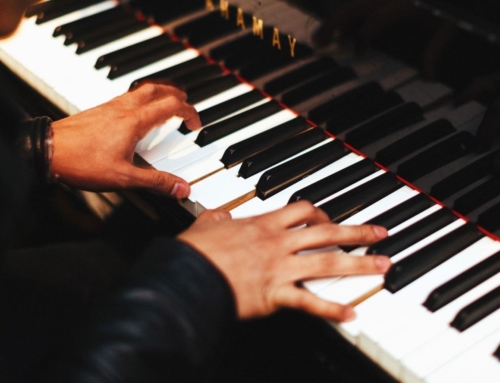Today, the United States observes a holiday in honor of Columbus’s arrival in the New World on October 12, 1492. We’re hardly alone in marking the occasion—most of our southern neighbors commemorate the day as well. The Bahamas marks Discovery Day straightforwardly enough, while Belize and Uruguay celebrate the Day of the Americas. Most Latin American countries recognize El Día de la Raza, or “Day of the (Hispanic) People/Race.” The Argentines gently sermonize with El Día del Respeto a la Diversidad Cultural: “The Day of Respect for Cultural Diversity.” Finally, the chavistas of Venezuela seek catharsis on El Día de la Resistencia Indígena (Day of Indigenous Resistance). It may be a bit on the nose, but Hugo Chavez’s Bolivarian Republic never was one for subtlety.
Columbus Day, in all its iterations, brings to the fore all the baggage that the Americas carry regarding the European conquest of these continents. History books have been written and re-written over the past decades as the traditional, lauding view of Columbus’s arrival has come under severe criticism. It’s all well and good to recite the poem about Columbus sailing the ocean blue, the critics say, but it does nothing to recognize the apocalyptic impact the arrival of Europeans had on the indigenous populations.
Death and disease, enslavement, forced conversions: everything that modern sensibilities condemn about the European colonial project is laid at the feet of the Genoan sailor. The hagiographies have been torn up—instead, the historical-critical approach discovers in Columbus the seed of all the woes that were to betide these shores in the centuries that followed his arrival.
Insofar as these controversies lead us to a greater historical consciousness about the injustices and cruelties of colonization, they have their merit. Repeating a one-sided, triumphalist narrative might give some sentimental satisfaction, but it does not serve the truth. No, the tragedies of the conquest flow from our fallen humanity, our sinfulness—and what good is history if it doesn’t help us understand these unsavory dimensions of ourselves?
For all of this, though, it still seems fitting for Catholics to mark the day and the man. This should not just be on account of some provincial pride that one of our coreligionists was pivotal in the settlement of this continent. We should celebrate because Columbus planted the flag of more than just Spain—he established a foothold for Western civilization in the new world.
We ought to have a certain reverence for our Western inheritance, not least because it is the height of folly to purposefully forget where one comes from. The activists chanting, “Hey hey, ho ho, Western civ has got to go!” speak to the kind of intellectual adolescence that has become de rigueur, in which the achievements of ancient Greece and Rome are so much dead weight to be cast off at the first opportunity. Small wonder, a tree begins to wither when uprooted from the soil. To think that a people can preserve their culture and free institutions when their foundations are systematically ignored (or denigrated) is one of the striking acts of misplaced hope that the contemporary academy makes with some regularity.
Western civilization has a particular claim on our affections as Christians because of the pivotal role it played in the spread of the Gospel. In his providence, God ordained that the Incarnation should take place near the apogee of the Pax Romana, when Roman order and enterprise knit the Mediterranean world together, creating the space for Hellenistic learning and culture to grow and spread.
Athens and Jerusalem were inextricably tied together because the early Church worked through its growing pains using the language and philosophy of the Greeks. From the key articles of the Christian faith to the rhythms of the liturgy, the two are thoroughly intertwined—faith and reason in harmony. Peter and Paul shed their blood in Rome, converting the worldly caput mundi into the city of the popes and home to a thousand churches.
This is not to say that we must accept Belloc’s sweeping claim that “Europe is the faith, and the faith is Europe.” Western civilization is the work of human hands, after all, and so is everywhere touched by the consequences of original sin. Examples of wickedness and impiety abound. Nor was the process of baptizing pagan culture an easy one—the blood of the martyrs testifies eloquently to that. The Gospel is bigger than any human culture and is a message for all peoples, in all places, and at all times.
Yet for all these caveats, the truth remains: God’s revelation did not take place with some abstract, ahistorical remove. To the contrary, God became man—and the Church took shape—in the midst of human history, and in a particular cultural context. As Christ’s life, death, and resurrection ennobled our humanity, so was Greco-Roman culture—violent, selfish, and benighted as it was in many ways—given new dignity by being the incubator for the Church.
It is entirely right to reckon with history in all its messy complexity. But let it also be considered with the sort of reverent sympathy we owe our forefathers—for if they fell short then, it only reminds us how we are still human now. On this Columbus Day, let us reach past the polemics and grasp the momentous day it marks: for we are now inheritors of a civilization that is imprinted with the sign of the cross.
✠
Image: Eugene Delacroix, Christopher Columbus and His Son at La Rábida







